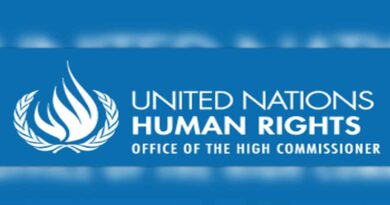SCAORA Knocks on Supreme Court’s Doors in Suo Motu Case Against Expanding ‘Digital Arrest’ Frauds
(By Syed Ali Taher Abedi)
Delhi, 11, November, 2025 -The Supreme Court Advocates-on-Record Association (SCAORA) has moved an intervention application in the Suo motu case being heard by the Supreme Court on the alarming rise of ‘digital arrest’ scams across the country.
“The Ministry of Home Affairs on 25.03.2025 issued a Press Release which revealed a shocking figure of 3,962 Skype IDs and 83,668 WhatsApp accounts, used for digital arrest, were identified and blocked by I4C (Indian Cyber Crime Coordination Centre set up by the Ministry of Home Affairs). Imperatively, till 28.02.2025, more than 7.81 lakhs SIM cards and 2,08,469 IMEIs, as reported by the Police authorities, have been blocked by the Government of India.”
In its plea, SCAORA submits that these scams have now become a nationwide menace, directly undermining the fundamental right to life and personal liberty guaranteed under Article 21 of the Constitution. The association has placed before the Court data indicating that incidents of digital arrest fraud are escalating at an alarming pace and continue to rise daily.
SCAORA has also highlighted a recent case involving a 72-year-old woman Advocate-on-Record, who was duped of approximately ₹3.2 crore in a sophisticated digital arrest scam. While law-enforcement agencies have managed to recover only ₹13.5 lakh so far, the incident, SCAORA argues, reflects both the scale and sophistication of such cyber-enabled crimes.
“The investigating agency has reported jurisdictional hurdles, a lack of manpower, inter-state coordination issues, and foreign-linked phone numbers as the causes of the delay, leaving the victim to run from pillar to post for compliance. The matter stands virtually stagnant, demonstrating the absence of a uniform Standard Operating Procedure (“SOP”) or coordinated protocol for the investigation of such offences”
The application, filed by SCAORA Secretary Nikhil Jain through AoR Astha Sharma, points out a regulatory vacuum at the policy level. It notes that no RBI circulars, guidelines, or master directions currently address digital arrest scenarios specifically.
“The telecommunications sector and the banking regulator sector need to strengthen their security by not permitting the transfer of vast amounts to suspicious accounts without proper verification from the account holder, or by keeping a close eye on small amounts being transferred from one account to bank accounts recently opened. The onus ought not to be on the victim alone as it is the bank authorities who sanction such transfers.”
SCAORA stresses that Section 70B of the Information Technology Act, which empowers CERT-In to coordinate national cybersecurity responses, must be operationalised more effectively, and that a clear procedural mandate is urgently needed to curb such scams.
“The adoption of the Draft UN Convention against Cybercrime could accelerate the development of a modernized national cybersecurity strategy that aligns with evolving international standards and best practices. Upon ratification of the treaty, India may have to amend the existing IT Act or introduce a new legislation covering the subjects not covered in the existing legal framework.”
The association further submits that a dual-layered statutory mechanism—preventive measures under FEMA and punitive provisions under PMLA—is already available to tackle the financial trail of digital arrest frauds, but requires stronger coordination and enforcement.
“Significant challenges are being faced by the Indian police force due to insufficient technical training especially in handling cybercrimes like digital arrests. The curriculum and training programs often lack up-to-date technological knowledge, leaving officers poorly prepared to investigate technology-driven crimes effectively and promptly.”
Calling the situation a public emergency demanding government-level intervention, SCAORA has urged the Central and State Governments, RBI, and banking institutions to launch door-to-door awareness campaigns to educate citizens about these emerging threats.
With cases continuing to surge nationwide, SCAORA asserts that a comprehensive, multi-agency response is the need of the hour to protect citizens from falling prey to digital intimidation and extortion rackets.



